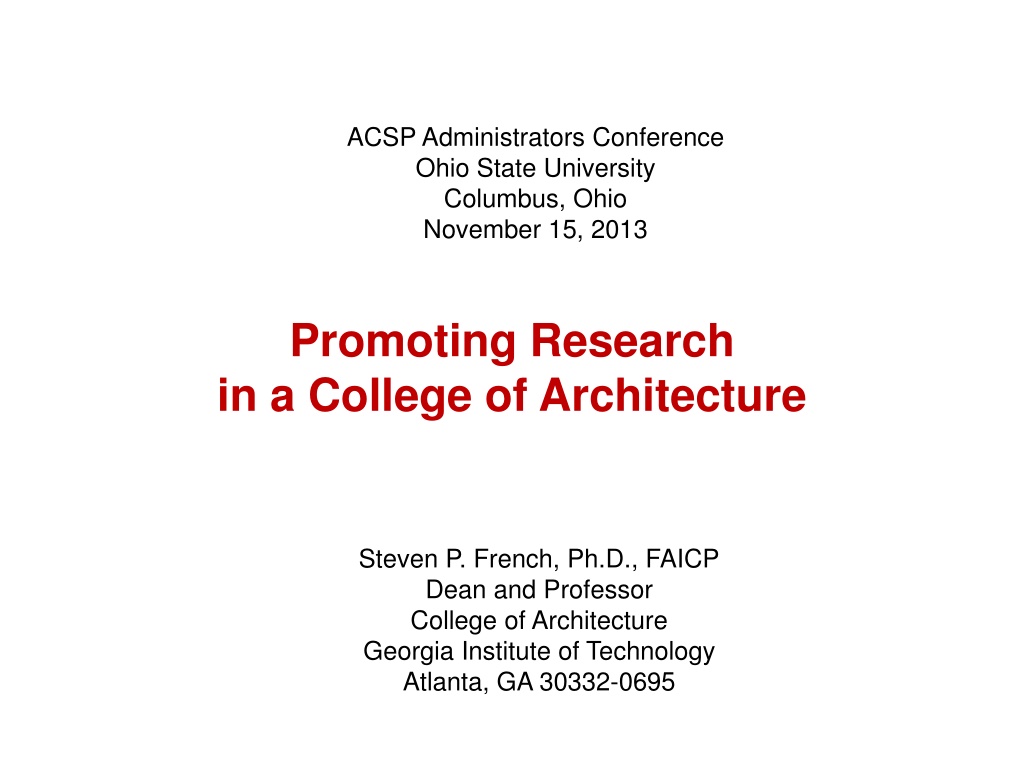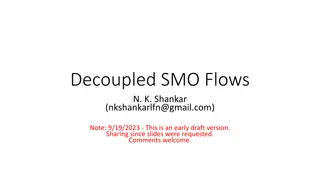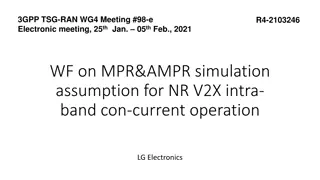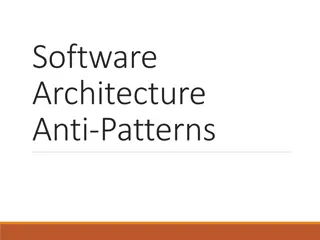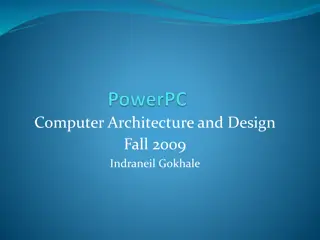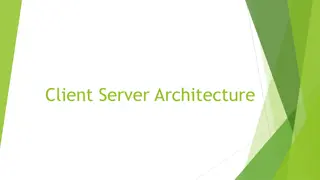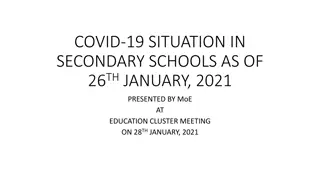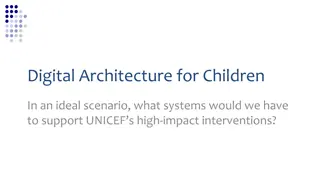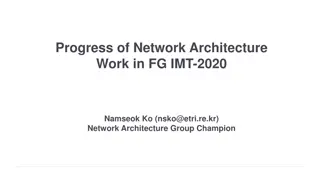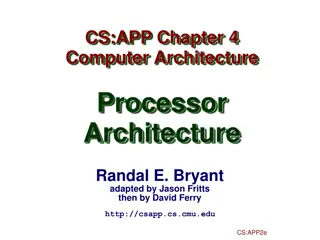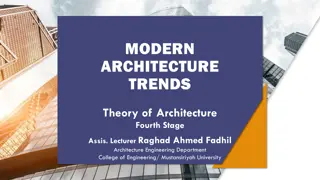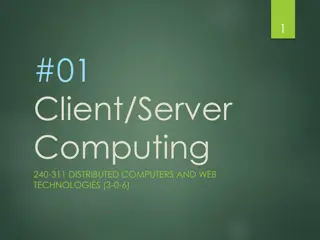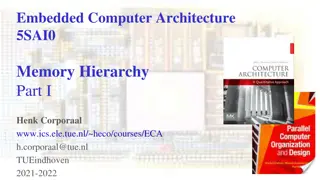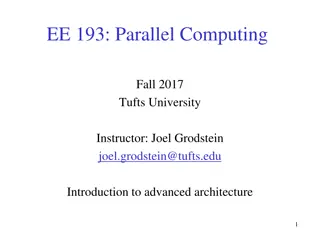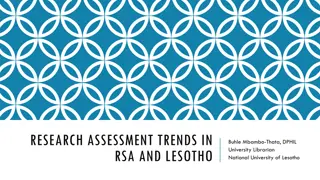Promoting Research in Architecture Schools: Challenges and Strategies
Innovation and knowledge creation are increasingly vital in universities, but architecture and design schools often lack a strong research tradition. This presentation at the ACSP Administrators Conference discusses the imperative to build interdisciplinary linkages, enhance university standing, support faculty, and engage in funding to tackle complex problems. It also highlights the research culture, urbanization trends, grand challenges, and key focus areas in the field.
Download Presentation

Please find below an Image/Link to download the presentation.
The content on the website is provided AS IS for your information and personal use only. It may not be sold, licensed, or shared on other websites without obtaining consent from the author. Download presentation by click this link. If you encounter any issues during the download, it is possible that the publisher has removed the file from their server.
E N D
Presentation Transcript
ACSP Administrators Conference Ohio State University Columbus, Ohio November 15, 2013 Promoting Research in a College of Architecture Steven P. French, Ph.D., FAICP Dean and Professor College of Architecture Georgia Institute of Technology Atlanta, GA 30332-0695
The Problem Innovation and knowledge creation are becoming more and more important in universities. Architecture and design schools do not have a strong tradition of research and often do not see themselves as having a strong research mission.
The Research Imperative Build interdisciplinary linkages Increase our standing in the university Support promotion and tenure Support graduate students Funding to engage interesting problems Inform our teaching
GT College of Architecture 800 Students 60 Faculty, 28 Research Scientists, 35 staff $10 million state funding, $6 million sponsored research 5 Schools 7 Research Centers Architecture Building Construction City and Reg. Planning Industrial Design Music Technology Digital Building Lab Center for Quality Growth Center for GIS Center for Assistive Technology Alternative Media Access Center Construction Research Center Center for Music Technology
Research Culture Commitment to research varies by discipline Creative Activity, Scholarship and Sponsored Research Faculty without a PhD have little research training
Urbanization This is the first urban century A majority of the world s population lives in cities Human impact on the environment is largely mediated through urban infrastructure systems China plans to move 250 million people from the countryside into cities by 2025 6
Grand Challenges Energy and Climate Change Major Demographic Shifts Information Technology Revolution
Key Areas Green Building Energy Efficient Buildings Micro-Housing Building Information Modeling Health Care Design Assistive Technologies Aging in Place Product Design Hazard Mitigation GIS and Remote Sensing
Possible Strategies Incentives Mentoring Studio based Research Workshops and Seminars Research Centers
Incentives What do faculty want? Money Time Space Prestige
Mentoring Can work if - You have someone who can and will be a mentor You have someone who wants a mentor The chemistry is right
Studio Based Research Can support initial exploratory research Can engage potential sponsors Sometimes difficult to mix learning objectives with research mission
Workshops and Seminars Workshops for proposal preparation Workshops for identifying funding sources Seminars for research examples Seminars increase communication Cannot create interesting questions
Research Centers Provide focus on specific topics Add capacity with research staff Increase sponsored funding Provide infrastructure for proposal development Tend to have a life of their own Should involve a team of faculty
Conclusions This is an opportune time to increase research in architecture and design schools because New faculty are more likely to have research skills, Our disciplines address major societal issues, and Business and Engineering have discovered design thinking
